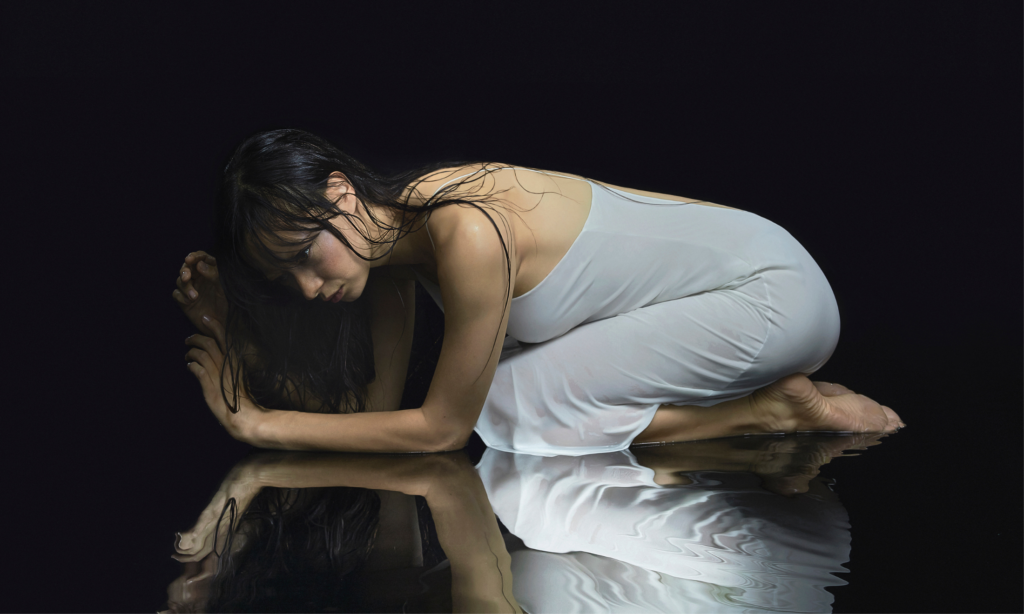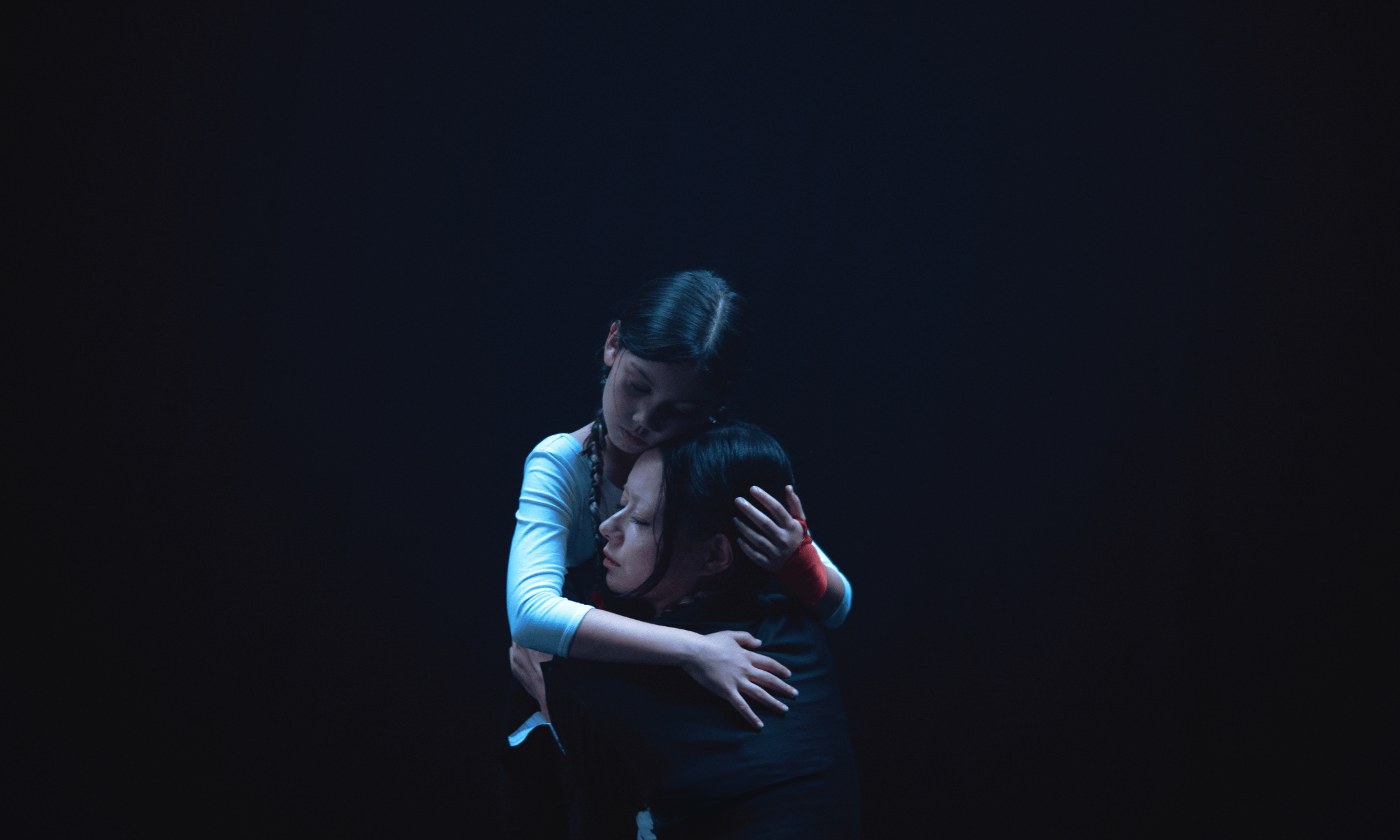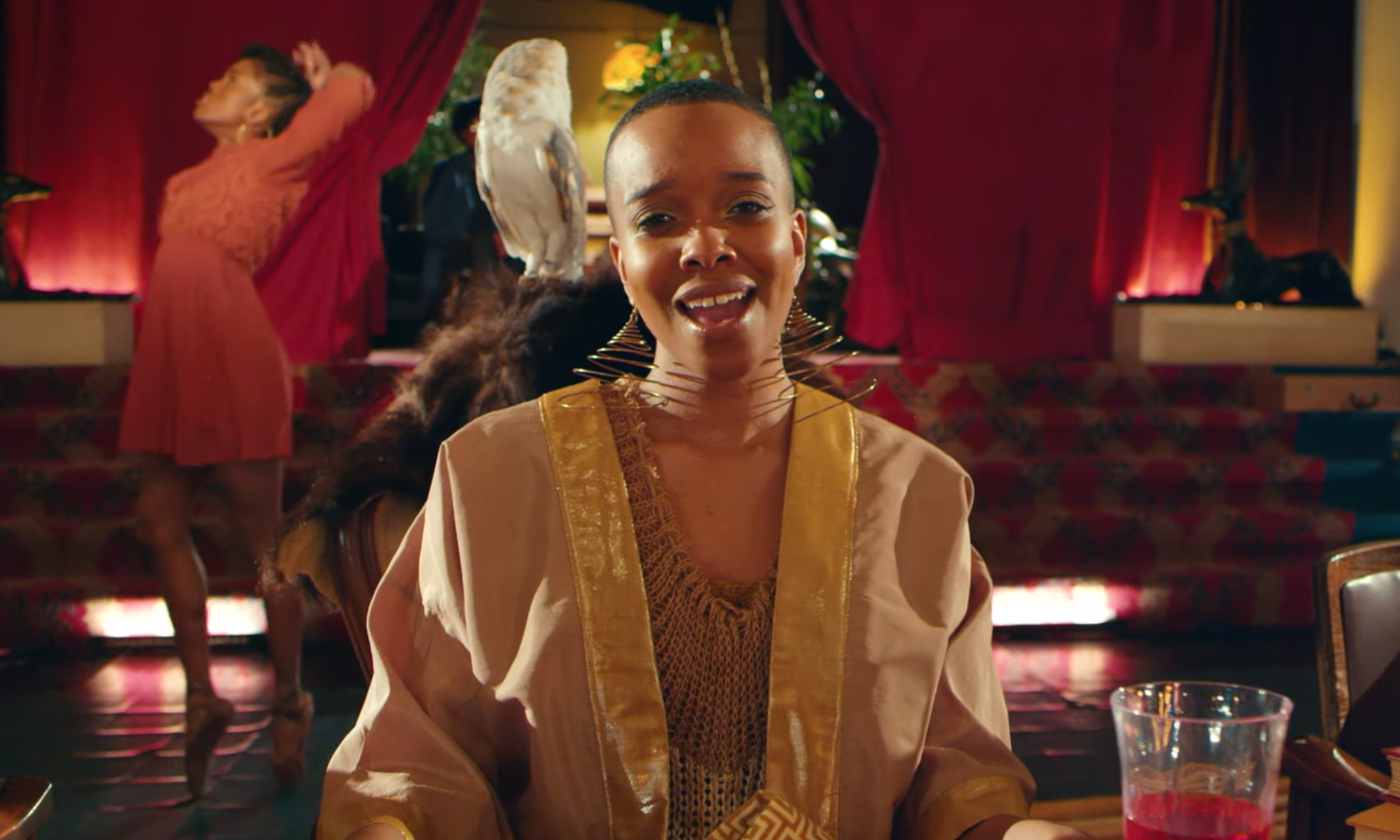With her sublime music, Lucinda Chua is crafting a delicate world for you to heal in
Following the release of her Antidotes 2 EP, the singer, multi-instrumentalist and producer talks music as language, touring with FKA twigs and interrogating identity.
Tara Joshi
10 Jun 2021

Nhu Xuan Hua
Lucinda Chua makes the sculptural, beguiling, atmospheric kind of music you can cocoon yourself inside.
You might know Lucinda from her work as a cellist with FKA twigs during the Magdalene era. But we didn’t name her as a one to watch for 2021 for nothing: it is very worth getting to know the artist’s own work. A singer, multi-instrumentalist and producer with English, Malaysian and ancestral Chinese roots, Lucinda was born in London before her family moved to Milton Keynes – a place where she found herself to be an outsider, before finding her tribe in the underground music scene: “No touring bands came there, so all of the weird outsider misfit kids came together to make their own alternative culture because you had to make it yourself. Every Friday night, weird teenagers would go to this venue, the Pits, and just let loose in the mosh pit. And that was when I started being in bands.”
We’re talking over Zoom following the release of her Antidotes 2 EP, and everything about her emanates warm, peaceful energy – her work has a much more slow-burning, calm presence than those moshpit beginnings might suggest. In fact, she’s signed to 4AD, the prolific indie label known for being home to the likes of Cocteau Twins and Erika de Casier.
Lucinda’s been doing lots of crafting to get her through this past year, she says, pointing to the angel wings she wears in the ‘Until I Fall’ video, and the ornate sequined creatures stitched into her jacket in the ‘Torch Song’ visual. “I think what got me through the hardest bit of lockdown was just spending a lot of time listening to audiobooks, and doing embroidery, calling on the mythology and symbols of my ancestors and presenting them in my own way,” she explains.
Lucinda Chua is no stranger to crafting her own world. We talk about growing up with music as a language, touring with FKA twigs and interrogating identity.
gal-dem: Let’s go way way back. I was reading that you learned music via something called the Suzuki method?
My parents were really keen for me to learn music – I think they thought that in learning music and having music lessons, I would learn discipline. And it would help me learn how to learn. The Suzuki method is really cool – it’s kind of this philosophy, this idea that anyone can be a musician, it’s not like you have music in your DNA. With the right environment and encouragement, any child can have potential. So a lot of it is based around listening and play. And it’s less focused on reading sheet music or passing exams, and more about self-expression, playing in groups, getting to perform and to be celebrated. So I started piano first, just before I turned four. And I think part of Suzuki is that you learn very young because it’s like learning a language – it’s thinking of music as being like a language and a way of expressing yourself. I was making songs on the piano before I knew about pop music on the radio or anything. So, it’s always been part of my life. I can’t really remember a time where I didn’t play music.
That’s very cool. In terms of all the instruments that you play now, have there been specific things that drew you to them? Or has it just been trial and error?
Piano was the one that was chosen for me, but cello was the instrument that I really wanted to learn. And I remember seeing a cello – I would have been maybe five or six, and I just became obsessed with it. I think my parents were concerned that I’d give it up, [because] I guess it’s kind of an investment to get a cello. So they were like if you carry on practising the piano, when you’re 10 you can start lessons in the cello. So I kept the piano up. And then when I was 10 I got to hire my first cello, which was a half-size. And that was just really magical because that was something that I’d chosen, rather than something chosen for me.
“The more work I make, the more I realise that I have authorship and agency over my own identity”
What was it like moving to London after university?
It was just really hard to find a community. London felt very big, and also I was super broke. It’s hard to meet people unless you’re going out, and I was just working loads of jobs, trying to find a decent job. I was trying to figure out what to do. It took me a really long time to feel part of a musical community in London. And then, I think a big part of finding my feet was just playing with other musicians or meeting up with other musicians for sessions on them. Just playing with everyone, meeting everyone, having a reason to meet up and commune that wasn’t having to spend money.
The only times I’ve seen you live are when you were touring with FKA twigs. Can you tell me more about what that was like?
It’s definitely the biggest project that I’ve been part of, and the biggest team that I’ve been part of. She’s very much the artist and the director of it, but there are so many people involved – theatre direction, costumes, music, technical direction, lighting direction. It was an incredible group of incredibly talented people who really believed in the art and gave everything. What made it so special, I think, is that everyone really believed in it. I felt like twigs created a really safe space for everyone, you know? And it was just pretty magical.

Maybe this isn’t relevant, but do you feel like working on something so big in scope is something you have since applied to your own work?
I think it’s more like if you can see someone like twigs working, that is just very inspiring if you can see the steps. Rather than trying to emulate her style, or trying to emulate her work, it kind of demystifies the strategy of how to create something like this, like, how do you do a music video? Or how do you put together a live show? Or, how can you scale up as an artist by developing a discipline or multiple disciplines, refining and honing your talent? Just being part of that journey, being inside and contributing to it, I came away with like, my imagination multiplied by 10. Rather than thinking, ‘Oh, well, I couldn’t possibly do that, because I’m not good enough’, you see someone thrive and you’re like, I want to thrive too.
You studied photography at university, and you have all this really beautiful imagery. Do you plan it all out together? Does your music innately have a visual aspect to your mind?
I think it feels quite intuitive to me, and it happened quite organically. But there was this [desire for] everything to fit together. I’ve been thinking a lot about my identity and my search for understanding my identity better. And so I’ve been drawing on some of the Eastern iconography like the dragon. I’ve been thinking about the rebirth, hope and vulnerability of the angel, the reflectiveness and fluidity of the water – they were definitely the themes that underpin the visuals, and I feel like they work together as one thing, but it definitely happened organically. And a lot of those ideas were sparked from the different collaborators that I worked with – some of the chats that we had together really opened my mind up to so many more possibilities.
You touched on identity there. I don’t want to be like, ‘tell me about your trauma‘, but I’m curious about your journey with your identity. Is it something you’ve always been conscious of exploring your work?
I think for me, it’s more like, the more work I make, the more I realise that I have authorship and agency over my own identity. My work as an artist is the one space that no one can tell me I’m right or wrong because it is how I see the world and it is a kind of reflection of my own experience. I’m the person who gets to choose rather than the person waiting to be chosen, which is how I feel in my work. I feel like I get to choose, so why wouldn’t I pick what I want. And so I think in exercising that agency, it’s given me confidence and a way of affirming my identity and defining my own language for what that identity means, rather than the way my mom sees me, or the way my dad sees me or the way strangers see me on the street. It’s the authorship over getting to create an identity. I want to be the artist I didn’t see growing up.
“I didn’t want to have to talk about my trauma, I wanted to be an antidote”
How has the past year been for you?
Whilst signing with 4AD was a bit of a lifeline for me last summer in lockdown and I am super grateful, it’s also been challenging entering the “music industry” specifically at a time when racism was top of the agenda and in the middle of the pandemic. Sometimes I feel very invisible, because our language around these experiences is often based on skin colour. It’s white or it’s black or it’s brown. But what if you don’t fit – where is the language? How can you heal yourself if you’ve never had the language to articulate that there was pain? I guess that’s what I see my work as, it’s my own language and way of communicating because I don’t have the words.
There’s something I find very nourishing about your music, and I wonder if that was an intention for you? With the EPs being called Antidotes?
Like you were saying – ‘I don’t want to interview you about your trauma’. You know, I didn’t want to have to talk about my trauma, I wanted to be an antidote. Going back to having authorship and agency, it’s like, if you get to live a slightly unconventional life, where you are in control of what you do and you get to manifest what you do, then why wouldn’t you choose for it to be nice? It’s the making of the work that has felt like the antidote. And I’m thinking very spatially about the music, as something that you can live inside. It’s just been a really nice alternative world for me to live inside whilst I’ve been making it. And I guess that’s what I hope it can be for someone who’s listening, too – a physical space that you can spend time in.
This interview has been edited for length and clarity. Lucinda Chua’s Antidotes EPs are out now on 4AD.






